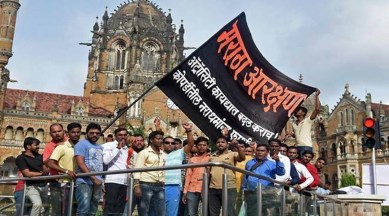Stay updated with the latest - Click here to follow us on Instagram
OBC quota in local bodies | What worked in Maharashtra’s favour: A dedicated commission, extensive data and MP’s example
The previous tripartite Maha Vikas Aghadi (MVA) government had appointed a dedicated commission under former Chief Secretary Jayant Banthia in March 2022 after the Supreme Court rejected the SBCC report citing several lacunae.

A dedicated commission report, which collated the empirical data on OBCs to fulfill the triple test specified by Supreme Court, in contrast to the interim report of the State Backward Class Commission (SBCC) prepared “in the absence of empirical study and research” was instrumental in the apex court changing its decision on political reservation for OBCs in state’s local bodies within three months.
The previous tripartite Maha Vikas Aghadi (MVA) government had appointed a dedicated commission under former Chief Secretary Jayant Banthia in March 2022 after the Supreme Court rejected the SBCC report citing several lacunae. The terms of reference set for the Banthia commission were to conduct empirical inquiry on the backwardness of the community, specify the representation of OBCs using village-level data and to ensure that total reservation does not cross the 50 per cent mark.
The court’s order accepting the Banthia commission report has not looked into its merits, on the lines of Madhya Pradesh, but has ensured that the mandated triple test has been followed.
According to OBC scholar Hari Narke, the issue of going into the merits of the report still remains to be tackled. But for the time being, the community has been given a breather, he said. “For both Madhya Pradesh and Maharashtra, the report has not been dealt on merits. It will be in the coming days. So, the battle for
OBCs is not over yet,” he said.
The Supreme Court’s decision to accept a similar report from Madhya Pradesh to provide reservation to other backward classes (OBCs) also helped Maharashtra’s bid. Taking a cue from MP, the commission used the data from the state’s Rural Development department and Urban Development department to reach the figure of OBCs. Data from the education department was also used to calculate the number of scholarships extended to OBC students. Besides, information from various other departments as well as welfare schemes was also included in the report to stress on the backwardness of the community. The commission also travelled across the state to meet various organisations, institutions and individuals in different parts of Maharashtra to include their inputs.
On the contrary, the backward class commission’s work was initially hampered by lack of funds. The apex court had expressed displeasure over the manner in which the report was prepared and even though it did not contest the observations made in the report, it asked the authorities such as state election commission to not act on it.
Based on it, the commission report finalised the OBC population at around 37 per cent of the total population and made the recommendation that the community be given reservation in local bodies based on actual population without crossing 50 per cent mark.
After the formation of the new government led by Chief Minister Eknath Shinde and deputy Chief Minister Devendra Fadnavis, the Banthia commission submitted its report to state Chief Secretary Manu Kumar Shrivastava on last Saturday, July 9. The SC bench had heard the case on July 12 and within a week, accepted the report paving way for OBC reservation in local bodies.